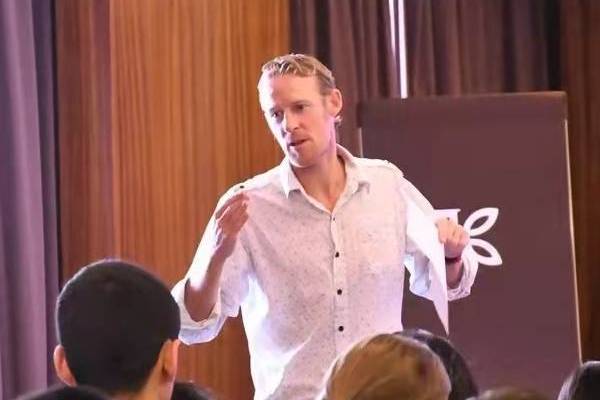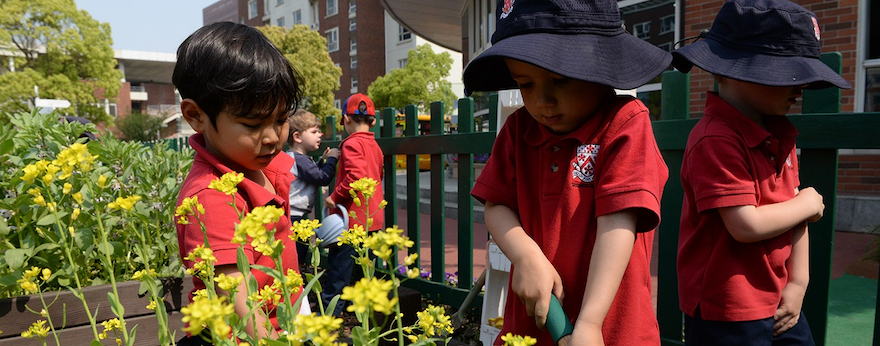Dulwich Insights | How wellbeing contributes to global citizenship

At Dulwich, we aim to nurture global citizens who can make a positive impact on the world – that is, Live Worldwise. While it is important to create learning environments where our students can excel academically, we are just as interested in developing them as whole people.
d'Arcy Lunn, our Group Head of Sustainability & Global Citizenship, elaborates below on why developing global citizens begins with nurturing student wellbeing:
Global citizenship: what does it mean, anyway?
As a long-time global citizenship educator, "global citizenship" to me is the broad umbrella that includes environmental sustainability, social justice, diversity, equity and inclusion, and more.
Being a global citizen is about being aware of the world and your place in it. It is about being a compassionate individual who is actively engaging with environmental and social issues at local and global levels.
In simple terms (and this is how I explain it to a 5-year-old) "global citizenship" is about being a good person for the environment and society.

But what does wellbeing have to do with global citizenship?
In our schools, global citizenship goes beyond "charity". Instead, we encourage our students to extend their humanity and compassion to feel connected to others and to the planet.
For example, as the UN Sustainable Development Goals (UN SDGs) are becoming more and more embedded in our schools, we are aligned with the missions to reduce inequality (Global Goal #10), increase gender equality (Global Goal #5) and work towards peace, justice, and strong institutions (Global Goal #17). In working towards these goals, we aim to extend our wellbeing beyond ourselves to others – in our classrooms, year levels, school community, local community, and even further to the world.
So, if being a global citizen is about being compassionate and extending our wellbeing to others, it follows that we need our own wellbeing intact. Positive education enthusiast David Bott sums this up beautifully when he says, "feel good, do good."
The bi-directional relationship between global citizenship and wellbeing
There is very clear behavioural science that suggests that being compassionate and altruistic, having a more global view of the world, and living with a sense of purpose all contribute to a sense of contentment and positivity. In our approach to global citizenship, whereby our students learn to extend their humanity and compassion to others, they are able to experience a powerful feeling of connection, community and purpose. This, in turn, improves their own wellbeing – kicking off a virtuous cycle.
Moreover, a key component of student wellbeing is related to the climate crisis. Our youth today are often faced with climate anxiety, where they can feel the burden of the world on their shoulders. To help our students deal with this, we must be sure to walk the line between reality and optimism.
For instance, some students need to understand the reality of the complexities of climate change, so they don't feel misguided to believe everything is fine. At the same time, they also need to experience optimism and hope, and believe their actions matter.
By encouraging our students to come together as a collective to engage effectively and actively with environmental and social issues, they gain both an awareness of real challenges while playing an important part in making a difference.
Ultimately, wellbeing at our schools is diverse, dynamic and desperately important. In the sphere of global citizenship, wellbeing can sit alongside sustainability, be an important contribution to community engagement or be an important consideration when talking about big global topics and issues. Personally, I like that there aren't clear lines and boxes around wellbeing and global citizenship. Rather, our schools continue to make dotted and squiggly lines connecting wellbeing and global citizenship in new, interesting and impactful ways.
Finally, here are two of my favourite theories of change that bring together global citizenship and wellbeing are:
- Taking "feel good, do good" to the next stage: Gift + Passion = Change (do something you love and something you're passionate about, and that will lead to positive change)
- Creating a greater sense of yourself and the world: Small actions X lots of people = BIG change!
Connect with us





